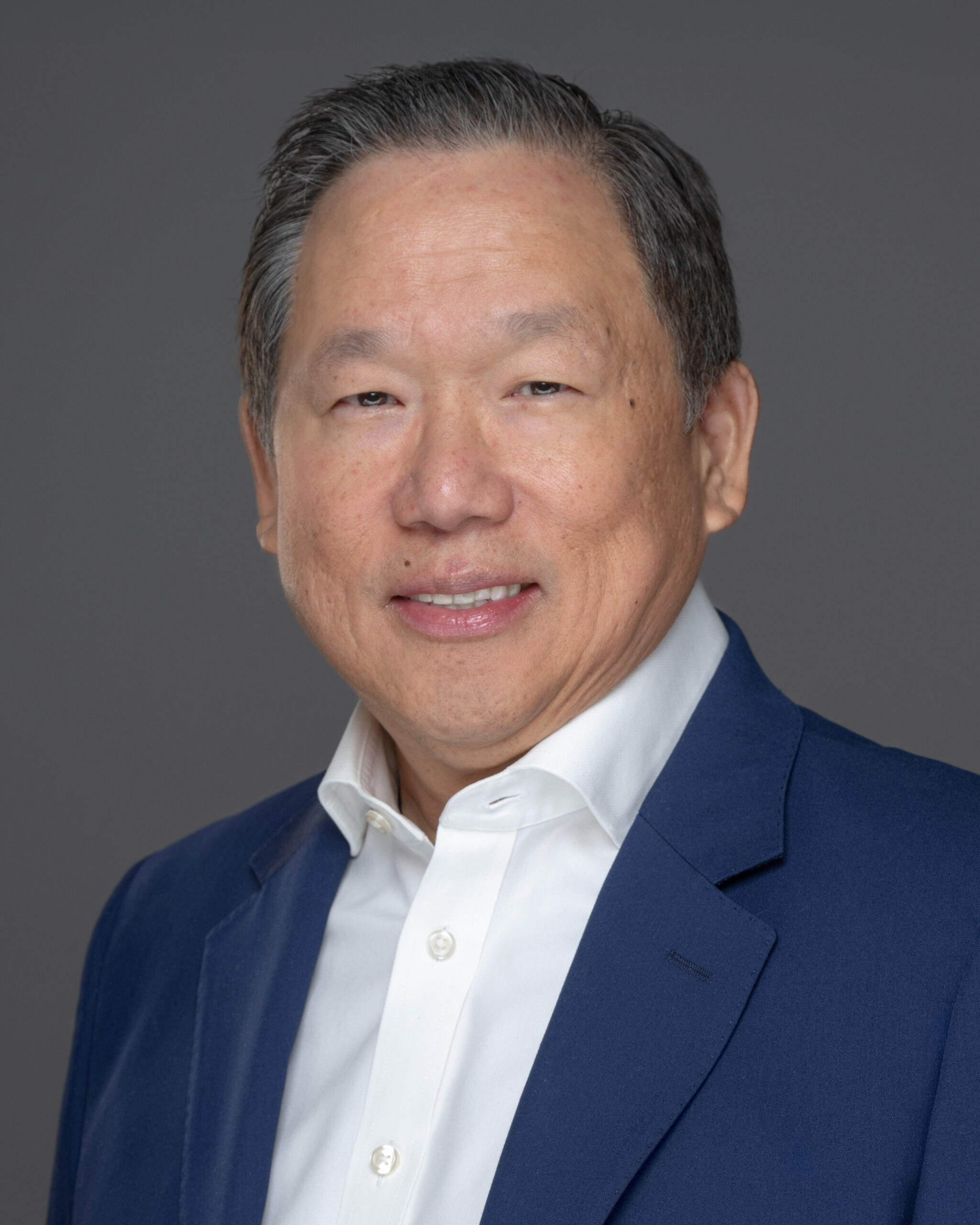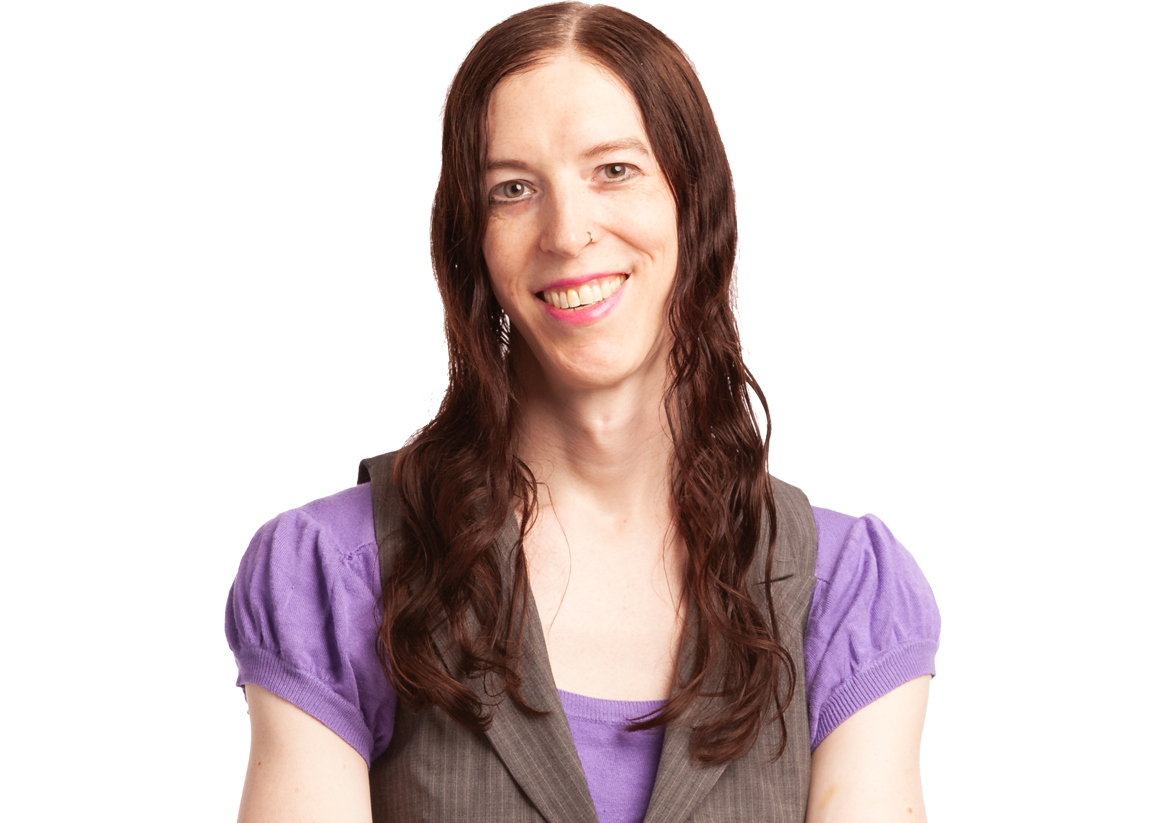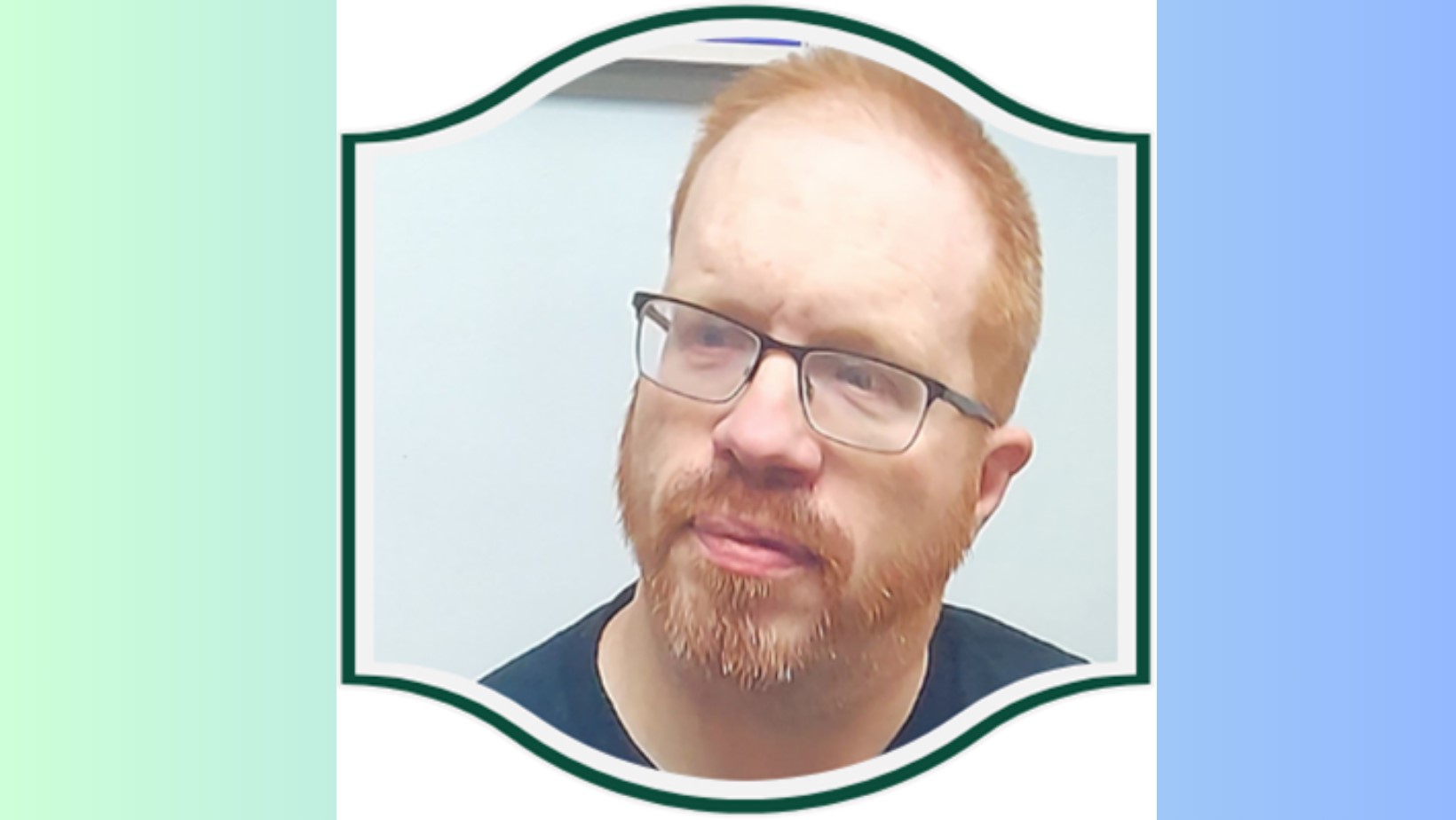Changemaker Interviews
From Self-Belief to Servant Leadership: The Will Lukang Story

Success isn’t always about where you start—it’s about how you choose to move forward. Will Lukang’s story is one of perseverance, transformation, and an unwavering commitment to servant leadership. Growing up, he didn’t stand out academically like his siblings. His parents often voiced their concerns about his future, making him question his own potential. However, during his junior year of high school, everything changed.
In a moment of self-reflection, Will made a pivotal decision—to believe in himself, even when no one else did. That mindset shift was the turning point in his life. Instead of focusing on comparisons or past failures, he leaned into his strengths, worked harder, and took control of his own journey. What followed was a career in software development that would eventually take him across the world, proving that our determination and resilience can shape our destiny.
From Learner to Leader
While Will found success in the corporate world, he quickly realized that technical skills alone weren’t enough to make a lasting impact. The true differentiator was leadership. But leadership, he learned, isn’t something you master overnight. There’s no step-by-step guide, no single blueprint. Instead, leadership is cultivated through experience, challenges, and a genuine desire to serve others.
His leadership philosophy wasn’t about authority or control—it was about service. He embraced the principles of servant leadership, where the focus is on empowering others to reach their full potential. This passion for developing leaders led him to co-found a company dedicated to leadership development and coaching. His goal was simple: to create spaces where aspiring leaders could learn, grow, and lead with purpose.
To further that mission, Will authored The Seeds of Leadership, his second book, designed to help individuals navigate their own leadership journeys. He believes that great leaders don’t just manage people—they inspire, uplift, and create opportunities for those around them. His work is a testament to that belief.
Staying Motivated in Difficult Times
Every journey comes with challenges. There are moments of doubt, setbacks, and times when giving up feels like the easiest option. But for Will, quitting was never on the table. His biggest motivation? His family.
His two daughters and his wife inspire him to give his best every day. They remind him of the importance of perseverance, integrity, and staying true to his values. No matter how difficult things get, knowing that he is setting an example for his children keeps him pushing forward.
Balancing work and personal life is another challenge he has learned to navigate. Success isn’t just about professional achievements—it’s about maintaining a life that is fulfilling and meaningful. For Will, setting priorities and boundaries is key. He makes sure to dedicate time to his family and personal well-being, proving that leadership doesn’t just happen in the workplace—it starts at home.
Lessons for Future Leaders
For those just starting out in their careers, Will offers practical advice:
- Master the basics. A strong foundation in your field will always set you apart.
- Be a team player. Collaboration and adaptability matter more than individual talent.
- Invest in learning. Never stop growing—whether it’s through formal education, mentorship, or hands-on experience.
Will believes that leadership isn’t just about climbing the corporate ladder; it’s about making a meaningful impact. His work helps people become more effective in their roles while also teaching them how to enjoy life more. When leaders are empowered, they create environments where others can thrive.
Giving Back and Leading with Purpose
Will’s dedication to leadership extends beyond business. He is deeply committed to giving back to his community, regularly volunteering at his church to support others. He believes that true leadership is about service—helping people grow, supporting those in need, and creating positive change wherever possible.
Looking ahead, his mission remains clear: continue spreading his message, traveling the world, and developing more servant leaders. He knows that one person’s influence can create ripples that extend far beyond what they can see. His journey is a testament to what’s possible when self-belief meets purpose-driven leadership.
Through his work, books, and mentorship, Will Lukang is not just building leaders—he’s building a legacy.
About Will
Will Lukang is a change agent, diversity champion, award-winning author, and C-suite executive specializing in leadership development and executive coaching. Known for building high-performing teams, he is also a skilled presenter and mental health advocate.
A firm believer in servant leadership, Will prioritizes nurturing talent and leading by example, a value instilled by his father. He co-authored The Character-Based Leader and frequently delivers impactful training on organizational development. He also released his second book Seeds of Leadership.
Will holds an MBA from Iona College, a master’s from Seton Hall University, a master’s certificate from George Washington University, and a bachelor’s from the University of Santo Tomas.
Connect with Will
- Website: www.kairosepllc.com
- LinkedIn: https://www.linkedin.com/in/lukangwill
- Instagram: https://www.instagram.com/iwillaim/
Changemaker Interviews
Mike Turner Is Building Brands That Move With Clarity

Mike Turner has spent more than a decade helping people and businesses grow—not just in scale, but in clarity, confidence, and direction. His career has spanned brand development, business growth, and customer success. But what ties it all together is his steady focus on delivering results with purpose.
“I’m a builder and a problem-solver,” he says. “I love helping people identify what’s working, remove friction, and scale with confidence.”
It’s that mindset that led Mike to launch his consulting work. Today, he serves as a strategic advisor for entrepreneurs, executives, and teams who want to level up without losing themselves in the process. He brings clarity, presence, and structure to brands that want to grow more intentionally.
Making Growth Practical and Personal
One of Mike’s core strengths is helping people move better—faster, clearer, and more aligned. His work helps leaders sharpen their voice, present themselves with more polish, and improve how their business operates behind the scenes.
“I focus on both brand and operational performance,” Mike explains. “It’s not just about the message—it’s how everything flows and supports the bigger picture.”
That focus on sustainable, system-driven success is rare in a world that’s obsessed with hustle. Mike’s approach is different. It’s calm, intentional, and rooted in values.
Why He Does the Work
Mike’s motivation comes from a simple place: helping people show up stronger. Over time, he noticed how many small businesses and entrepreneurs had a powerful vision—but lacked the systems to scale it. That gap became the driving force behind his consulting.
Through strategy, leadership coaching, and brand alignment, he equips others to lead with excellence and communicate with clarity. And when the foundation is clear, growth follows.
Building a Career with Intention
Mike didn’t stumble into leadership—he built it brick by brick. He currently leads initiatives that support both corporate and entrepreneurial ecosystems, and he serves as President of a corporate Toastmasters chapter. He’s also been nominated as a board advisor for a nonprofit, adding service and community leadership to his resume.
Each role he takes on is guided by the same values: structure, clarity, and long-term value. “Leadership isn’t about control,” he says. “It’s about orchestration.”
Leading Without Micromanaging
Mike describes his leadership style as calm, focused, and purpose-driven. He values structure and emotional intelligence. And he believes in creating an environment where people feel seen, supported, and trusted to lead themselves.
“I don’t micromanage—I systematize,” he says. “That gives others the confidence to operate with autonomy while still staying aligned.”
It’s a balance many leaders struggle to find, but Mike leans into it with ease. He knows when to speak up, when to delegate, and when to let the systems do the work.
Lessons in Business and Growth
Mike’s path hasn’t been without challenges. But each one taught him something valuable. The biggest lessons? Clarity matters. Culture matters. And if you want to scale, you need more than talent—you need systems.
“I’ve learned that structure accelerates growth,” he explains. “Ambiguity slows everything down.”
He’s also learned the importance of listening. His strategies aren’t one-size-fits-all—they’re informed by what real people need and the environments they’re navigating.
What Keeps Him Going
In difficult seasons, Mike relies on purpose and perspective. “When your why is strong, your resilience follows,” he says.
Instead of getting stuck in the emotion of a challenge, he focuses on the data. What can be learned? What needs to be shifted? It’s that mindset—objective and strategic—that allows him to stay grounded and move forward with intention.
Staying Innovative in a Fast-Changing World
Mike keeps one foot in execution and one foot in observation. He studies trends, listens to what people aren’t saying, and turns those insights into repeatable, actionable strategies.
“Innovation doesn’t have to be chaotic,” he says. “It can be systematized.”
That approach allows him to bring fresh energy to every project without losing traction. Creativity and efficiency don’t have to be opposites—they can work together to drive results.
Looking Ahead
Mike’s not slowing down anytime soon. He plans to keep building platforms and partnerships that support growth-minded individuals while staying grounded in service and long-term strategy. His ultimate mission? To normalize success that doesn’t burn people out—to show that growth can be sustainable, clear, and deeply human.
Every time he helps someone lead better or a brand show up stronger, he moves one step closer to that vision.
Connect with Mike Turner
Website: www.miketurnercoaching.com
LinkedIn: linkedin.com/in/miketurnerinternational
Changemaker Interviews
Lacey Artemis Is Building the Community She Spent Years Searching For

Lacey Artemis grew up quiet, unsure, and often overlooked. For years, she struggled to find a place in the world—a space where being curious, creative, and deeply thoughtful wasn’t just accepted but celebrated. Today, she is the founder of Arty Mix Events, a speaker, podcast host, performer, and unapologetically multi-passionate creative who’s making that space for others.
Lacey’s journey is one of persistence and self-discovery, built through years of exploring different passions, overcoming self-doubt, and finally realizing that their strength was in being more than one thing. She now uses her voice and work to support other neurodivergent creatives and grownups who long to reconnect with their sense of play and purpose.
From Hobbyist to Creative Professional
Lacey’s creative streak started young, but when she studied design in college, the message from instructors was clear: this path won’t pay the bills. So, like many others, she chose a “safe” administrative route and kept their creativity alive as a side project.
“I lived a double life for 15 years,” she said. “I kept working to prove what I could do.”
What Lacey didn’t know then was that their passion wasn’t just a hobby—it was a clue. Over time, she combined skills in writing, performing, media, and design into something that not only worked but lit them up. Eventually, she founded Arty Mix Events, creating spaces for people to connect, play, and express themselves in ways that typical event spaces rarely allow.
Podcasting, Performing, and the Power of Conversation
In their late 20s, Lacey started a podcast to learn more about people’s careers. It was a quiet project that slowly revealed something powerful—she loved deep conversations. That podcast eventually evolved into a more expansive show, HAT COLLECTING, which allowed Lacey to blend many of their talents into one platform.
She also realized she had a gift for the stage. Performing became a way to reclaim the confidence their younger self lacked. “Every time I get on stage or have a microphone in my hand,” Lacey shares, “I get further redemption for a younger me who was always doubted or overlooked.”
Even after facing burnout and pauses along the way, Lacey always returns to the mic—and to the communities their work brings together.
No One Path, No One Box
Lacey’s biggest challenge wasn’t choosing between creative passions. It was the pressure to choose only one. Coaches and peers told them to focus. But that advice never worked. What Lacey needed was someone who understood what it means to be multi-passionate.
“I thrive when I can meld three or more interests together,” she explains. “Burnout didn’t come from doing too much—it came from doing it alone, without support.”
Late-diagnosed neurodivergence, gender transition in their 30s, and ongoing struggles with money and trauma only added to the uphill climb. But Lacey kept pushing forward. And eventually, she found the right community and the right people to help them grow.
Creating the Events She Longed For
After years of craving meaningful, inclusive, in-person events that weren’t centered around bars, clubs, or surface-level small talk, Lacey took matters into their own hands. She launched Arty Mix Events to offer something different—spaces that are creative, accessible, and built for genuine connection.
“The events I wanted didn’t exist. I finally decided to change that,” Lacey says.
As someone who knows the loneliness of being misunderstood or left out, Lacey builds with intention. Their events welcome people who are often excluded elsewhere—those with invisible disabilities, neurodivergent thinkers, and adults who miss the playful parts of themselves.
Built on Curiosity, Creativity, and Community
Lacey’s work is guided by three core values: curiosity, creativity, and community. A coach once told them to only say yes to opportunities that fit one of those pillars—and that advice changed everything.
Now, Lacey is seeking stages and spaces where she can share their story, connect with others who’ve felt invisible, and continue shining while encouraging others to do the same. “Some might say I’ve done almost all of this the hard way,” Lacey says, “but as a result, I can help others skip some of the circles I ran in for a decade.”
A Life That Finally Feels Like Theirs
For Lacey, success isn’t about fitting into a mold—it’s about building a life that feels right, one decision, one event, one brave moment at a time.
She has transformed years of feeling unseen into a mission that creates space for others to show up fully as themselves. Every time someone walks into an Arty Mix event or listens to a podcast episode and finally feels like they belong, Lacey knows she is doing exactly what she was meant to do.
“I spent a long time climbing hills alone,” she says. “Now, I want to make the path easier for the next person—and remind them they’re never as alone as they think.”
Lacey Artemis is no longer chasing a place in the world. She’s creating one—and making room for the rest of us to join in.
Connect with Lacey Artemis
- Website: www.artymixevents.com
- Email: lacey@laceyartemis.com
- Instagram: www.instagram.com/artymixevents
Changemaker Interviews
Rising Above Adversity with Sheldon Crocker

Sheldon Crocker knows what it means to fight through hardship—and win. As an award-winning author, inspirational speaker, and resilience-building expert, he has turned his own story of struggle into a message of hope for people around the world. From childhood trauma and physical limitations to addiction and deep emotional pain, Sheldon has faced more than most. But he never let those challenges define him. Instead, he used them as stepping stones toward a life of purpose, strength, and service. Rising above adversity, his work today empowers others to do the same: to face adversity head-on and come out stronger.
A Voice Born from Experience
Sheldon’s mission began in silence. For years, he carried the weight of abuse and addiction alone, unsure if he had the right to dream of something more. But over time, he realized that his story could become a lifeline for others—if he had the courage to share it.
“I was inspired by my own battles,” Sheldon says. “People around me were suffering in silence, like I once did. I knew I had a voice to help them rise.”
From that realization came a commitment to speak, write, and teach in a way that is raw, honest, and deeply personal. His message is clear: your past doesn’t define you—your response does.
Keep on Walking
One of Sheldon’s most powerful principles is what he calls “KEEP on WALKING.” It’s not about giant leaps or instant fixes. It’s about small, steady steps—especially when the path feels impossible.
“I faced physical limitations and emotional scars that nearly broke me,” he shares. “But I kept walking. I surrounded myself with people who believed in me when I couldn’t believe in myself.”
That mindset became the core of his resilience work. Through talks, books, and his growing Empowerment Course, Sheldon helps others find their footing when life knocks them down.
Rising Above Adversity
Sheldon’s journey has shaped everything he teaches. He doesn’t lead from theory—he leads from lived experience. That’s what gives his work its impact.
“I bring practical tools and authentic storytelling to help people create real transformation,” he explains. “Adversity isn’t the end. It’s the beginning of something powerful.”
His approach is grounded in integrity and purpose. He’s not interested in quick fixes or surface-level motivation. He wants people to dig deep, rise strong, and make lasting change.
Connecting Through Truth
At the heart of Sheldon’s work is connection. His audience includes anyone who has struggled—anyone who’s ever felt broken, stuck, or invisible. He reaches them by being real, by offering strategies they can actually use, and by showing up with his full self.
“Relatable stories and actionable steps are how I connect,” he says. “I’m not here to preach. I’m here to walk alongside people.”
That connection is what makes his message stick. People don’t just hear Sheldon—they feel understood by him.
Defining Success Through Impact
To Sheldon, success isn’t about awards or applause. It’s about the lives changed. The letters he gets. The people who tell him they kept walking because of his words.
“Success means living with purpose and staying true to my mission,” he says. “It’s about impact. It’s about creating hope where there was none.”
It’s also about staying grounded. For Sheldon, values like authenticity, compassion, and service are the compass points that guide every decision he makes.
What’s Next
Looking ahead, Sheldon is focused on expanding his reach. He’s booking more speaking engagements, growing his workshop offerings, and building partnerships that allow his message to spread farther and faster.
He’s also continuing to develop his Empowerment Course, Unleash Your Inner Strength: A 6-Week Journey to Emotional Empowerment and Personal Transformation, and plans to publish more books designed to guide readers through their own journeys of resilience. His free guide, Unlock Transformation: 7 Steps to Unleash Your Potential, is already helping people take the first steps.
But no matter how big his platform grows, his goal remains the same: to help people rise.
Connect with Sheldon Crocker
- Website: https://www.sheldonstransformativethinking.com
- LinkedIn: https://www.linkedin.com/in/sheldon-r-s-crocker
- Facebook: https://www.facebook.com/Sheldon.R.S.Crocker.Speaker
- YouTube: https://www.youtube.com/@sheldonscrockersTransformThink
- Email: sheldon@sheldonstransformativethinking.com
-

 Career Advice6 months ago
Career Advice6 months agoInterview with Dr. Kristy K. Taylor, WORxK Global News Magazine Founder
-

 Diversity and Inclusion (DEIA)6 months ago
Diversity and Inclusion (DEIA)6 months agoSarah Herrlinger Talks AirPods Pro Hearing Aid
-

 Career Advice6 months ago
Career Advice6 months agoNetWork Your Way to Success: Top Tips for Maximizing Your Professional Network
-

 Changemaker Interviews5 months ago
Changemaker Interviews5 months agoUnlocking Human Potential: Kim Groshek’s Journey to Transforming Leadership and Stress Resilience
-

 Diversity and Inclusion (DEIA)6 months ago
Diversity and Inclusion (DEIA)6 months agoThe Power of Belonging: Why Feeling Accepted Matters in the Workplace
-

 Global Trends and Politics6 months ago
Global Trends and Politics6 months agoHealth-care stocks fall after Warren PBM bill, Brian Thompson shooting
-

 Global Trends and Politics6 months ago
Global Trends and Politics6 months agoUnionization Goes Mainstream: How the Changing Workforce is Driving Demand for Collective Bargaining
-

 Training and Development6 months ago
Training and Development6 months agoLevel Up: How Upskilling Can Help You Stay Ahead of the Curve in a Rapidly Changing Industry





















